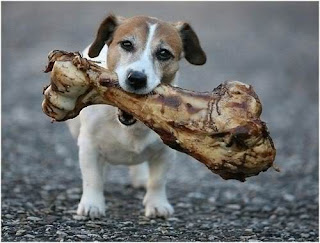To A Mouse.
On turning her up in her nest with the plough, November 1785.
Robert Burns was a poet, but that was not what earned him his living. As with most artists of his time he had to have some means of earning his keep. In Burns' case he earned most of his money, sparse though this was, from farming. This is why he is also known as the "Ploughman Bard".
It was while he was ploughing one of his fields that he disturbed a mouse's nest. It was his thoughts on what he had done that led to his poem, "To A Mouse", which contains one of his most often quoted lines from the poem. I am sure that you will recognize it, probably not from the Scottish words, but from the translation, lines 4 and 5 from verse 7.
To a Mouse
Standard English
Small, sleek, cowering, timorous beast,
O, what a panic is in your breast!
You need not start away so hasty
With hurrying scamper!
I would be loath to run and chase you,
With murdering plough-staff.
I'm truly sorry man's dominion
Has broken Nature's social union,
And justifies that ill opinion
Which makes thee startle
At me, thy poor, earth born companion
And fellow mortal!
I doubt not, sometimes, but you may steal;
What then? Poor beast, you must live!
An odd ear in twenty-four sheaves
Is a small request;
I will get a blessing with what is left,
And never miss it.
Your small house, too, in ruin!
It's feeble walls the winds are scattering!
And nothing now, to build a new one,
Of coarse grass green!
And bleak December's winds coming,
Both bitter and keen!
You saw the fields laid bare and wasted,
And weary winter coming fast,
And cozy here, beneath the blast,
You thought to dwell,
Till crash! the cruel plough past
Out through your cell.
That small bit heap of leaves and stubble,
Has cost you many a weary nibble!
Now you are turned out, for all your trouble,
Without house or holding,
To endure the winter's sleety dribble,
And hoar-frost cold.
But Mouse, you are not alone,
In proving foresight may be vain:
The best laid schemes of mice and men
Go often askew,
And leaves us nothing but grief and pain,
For promised joy!
Still you are blest, compared with me!
The present only touches you:
But oh! I backward cast my eye,
On prospects dreary!
And forward, though I cannot see,
I guess and fear!
Burn's Original
Wee, sleekit, cowrin, tim'rous beastie,
O, what a panic's in thy breastie!
Thou need na start awa sae hasty
Wi bickering brattle!
I wad be laith to rin an' chase thee,
Wi' murdering pattle.
I'm truly sorry man's dominion
Has broken Nature's social union,
An' justifies that ill opinion
Which makes thee startle
At me, thy poor, earth born companion
An' fellow mortal!
I doubt na, whyles, but thou may thieve;
What then? poor beastie, thou maun live!
A daimen icker in a thrave
'S a sma' request;
I'll get a blessin wi' the lave,
An' never miss't.
Thy wee-bit housie, too, in ruin!
It's silly wa's the win's are strewin!
An' naething, now, to big a new ane,
O' foggage green!
An' bleak December's win's ensuin,
Baith snell an' keen!
Thou saw the fields laid bare an' waste,
An' weary winter comin fast,
An' cozie here, beneath the blast,
Thou thought to dwell,
Till crash! the cruel coulter past
Out thro' thy cell.
That wee bit heap o' leaves an' stibble,
Has cost thee monie a weary nibble!
Now thou's turned out, for a' thy trouble,
But house or hald,
To thole the winter's sleety dribble,
An' cranreuch cauld.
But Mousie, thou art no thy lane,
In proving foresight may be vain:
The best laid schemes o' mice an' men
Gang aft agley,
An' lea'e us nought but grief an' pain,
For promis'd joy!
Still thou are blest, compared wi' me!
The present only toucheth thee:
But och! I backward cast my e'e,
On prospects drear!
An' forward, tho' I canna see,
I guess an' fear!
 SOURCE:
SOURCE: 


http://www.worldburnsclub.com/poems/translations/554.htm



 SOURCE:
SOURCE: 